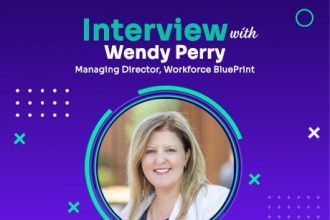RPL stands for Recognition of Prior Learning. It is a process whereby an individual’s prior learning (whether it be formal, informal or non-formal) is assessed and recognised against the requirements of a particular training product, such as a unit of competency, skill set or qualification.
The recognition of prior learning is the process and documentation of identifying, assessing and recognising a person’s prior experience, skills, knowledge and abilities, regardless of how, when or where they gained it and regardless of how it developed. An individual can use the recognition of prior learning (RPL) for a variety of reasons, such as gaining entrance into further study, advancing within a qualification, or being assessed for competency against certain set standards.
Difference between formal, informal and non-formal learning
The purpose of educational systems is to facilitate formal learning, which is guided by a curriculum and is purposeful in the sense that acquiring knowledge is the end aim of all of the activities in which students participate. Tests and other types of assessments are used to measure the outcomes of students’ learning. When adult migrants enrol in a class to study the language of their new community, they are participating in a structured kind of education. If the class is based on an assessment of their needs, the curriculum will follow a plan that outlines the communicative repertoire that successful students will have acquired by the end of the course. Whatever types of assessment are included with the course should reflect the nature and extent of the repertory that will be covered in it.
Learning that is non-formal takes place outside of traditional classroom settings, yet it still takes place inside some kind of organisational structure. It is the product of the learner making a conscious decision to master a specific activity, skill, or field of learning, and as such, it is the outcome of intentional effort being put forth by the learner. However, it is not necessary for it to adhere to a predetermined curriculum or be subject to the regulations of an external accreditation and evaluation system. Generally speaking, non-formal learning takes place in community settings, such as reading groups, debating societies, amateur choirs and orchestras, and other similar activities. Swimming courses for young children, numerous sports organisations for people of all ages, and so on are some examples. One might think of graded exams in music and other performing arts as an example of an informal learning arrangement that gradually transitions into a more formal one as the student increases their level of expertise. Adult migrants who take part in organised activities that combine the learning and use of their target language with the acquisition of a particular skill or body of information are said to be engaging in non-formal language learning.
Learning that occurs outside of official settings like schools and colleges and is the result of the learner’s participation in activities that were not performed with the intention of acquiring new knowledge is known as informal learning. Because it is both unintentional and virtually impossible to avoid, informal learning is also frequently referred to as experiential learning. This is due to the fact that it occurs in everyday life. When we intentionally pursue any learning aim, it is impossible to avoid learning things that are not a part of that target. This is true whether the learning is formal or informal. However, unplanned experiences are the exclusive source of informal learning.
RPL can be a valuable tool for individuals who want to improve their employment prospects or gain additional qualifications. It can also benefit employers by reducing the need for formal training and development programs.
RPL can be used for many different purposes, such as:
- to obtain a formal qualification
- improve employment prospects
- to gain entry into further education or training programs
- to progress within a current job or career.
- to progress within a current job or career.
The RPL process typically involves the following steps:
- identification of prior learning;
- assessment of prior learning; and
- recognition of prior learning.
Prior learning can be acquired in many different ways, such as through work experience, life experience, formal education and training, or informal learning.
The assessment of prior learning generally involves comparing an individual’s prior learning against the requirements of a particular qualification to determine if the individual has the necessary knowledge, skills and attributes to meet those requirements.
Recognition of prior learning generally results in the individual being awarded credit towards the qualification. This means that the individual will not have to complete certain tasks or assessments that are required for the qualification, as they have already demonstrated their competence through their prior learning.
RPL can be a very useful tool for individuals who have acquired skills and knowledge through work experience or other non-formal learning pathways. It can also be beneficial for those who may not have the opportunity to complete a formal qualification, but who still want to obtain recognition for their skills and knowledge.
If you are interested in undertaking RPL, it is important to speak to a qualified assessor or training provider to discuss your options and the best way to go about it.







